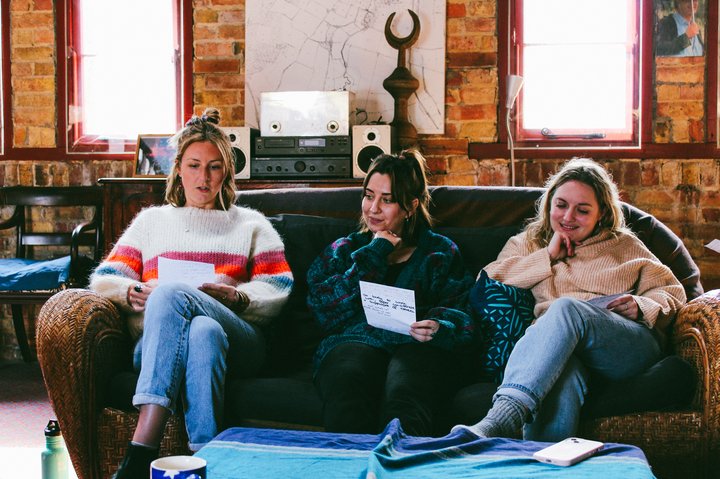Q&A: Joining Settle as our Fundraising and Development Officer
What does your day look like?
It’s a bit cliche but every day is different! Responsibilities range from managing fundraising campaigns, writing reports and applications, managing relationships with funders and donors, organising events, researching new opportunities and connecting with supporters. With all of these things comes desk time and admin, but there’s definitely opportunities to get out and about as well. For example with supporting our runner in the London Marathon, hosting our grant funders in our offices as well as attending awards celebrations, funder events and meetings with our corporate supporters around London.
The fundraising role at Settle sits within the Support Team, who meet once a week to check in and have weekly team days in the office together. There’s also lots of opportunities to connect with the Programme team, through monthly team meetings (or crashing their team days at the office, which is also welcomed) as well as projects that cross over between Programme work and fundraising. For example, reporting on the impact of the cost of living crisis and COVID-19 involved lots of check-ins with the Programme team, to ensure that I was up to date on what young people were experiencing. When reporting to funders on their grants I often interact with frontline colleagues to produce case studies of individual young person’s experiences, where it’s really uplifting to see the positive impacts of Settle’s work.
What’s been your favourite part of your role?
My personal highlights have been organising the Big Give campaign in 2021 and overseeing the set up of the Mental Health project. For the campaign we ran a workshop with young people so we could co-produce the campaign film. It was a really fun and fulfilling project to manage, we smashed our fundraising target and I loved working with young people on this project. It made me feel really connected to the work we do which is valued and considered as important at Settle, and we ended up winning an award for the campaign in a national competition which was a lovely bonus!
The Mental Health project arose through conversations with the Programme team about the impacts of lockdown on the young people we support and thinking about how we could develop our support offer. It took about a year to research, produce a project outline and secure funding. Our project is really special as it’s a unique support offer; young people can access free long term therapy with a therapist of their choice, remote or in-person. I’m really proud of Settle’s work on this project, as since January 2021 we’ve enabled 17 young people to access over 199 hours of therapy.

Tell me about what it’s like to work at Settle
I started at Settle in March 2020, just before the very first lockdown, as the Fundraising Officer. I think I was the 6th team member to join, so we’ve grown a lot considering we’re a team of 16 now! There’s been a lot of thought put into how individuals at Settle can progress professionally, you have a budget for development, monthly one-to-ones with your manager and there’s formal annual appraisals.
One of the special things about Settle is the team, I’ve not worked somewhere before with such a supportive and inclusive atmosphere. Everybody is genuinely so committed to tackling youth homelessness and I’ve found myself feeling really inspired by my colleagues. There’s also lots to get involved in outside of your immediate role, I’ve also been involved in projects around building Settle’s Advocacy work, organising socials and creating the Equity Diversity and Inclusion strategy.
In terms of the social side, Settle has a really nice blend of formal and informal opportunities to connect with colleagues. There’s an away day once a year, last year we stayed overnight at a barn outside London where we did team building activities, a countryside walk and lots of bonding over games, food and music. Once a quarter there’s activity based socials in London like cooking classes, board games nights and ice skating. Then much more informally, we tend to go to the pub or out for lunch most months.